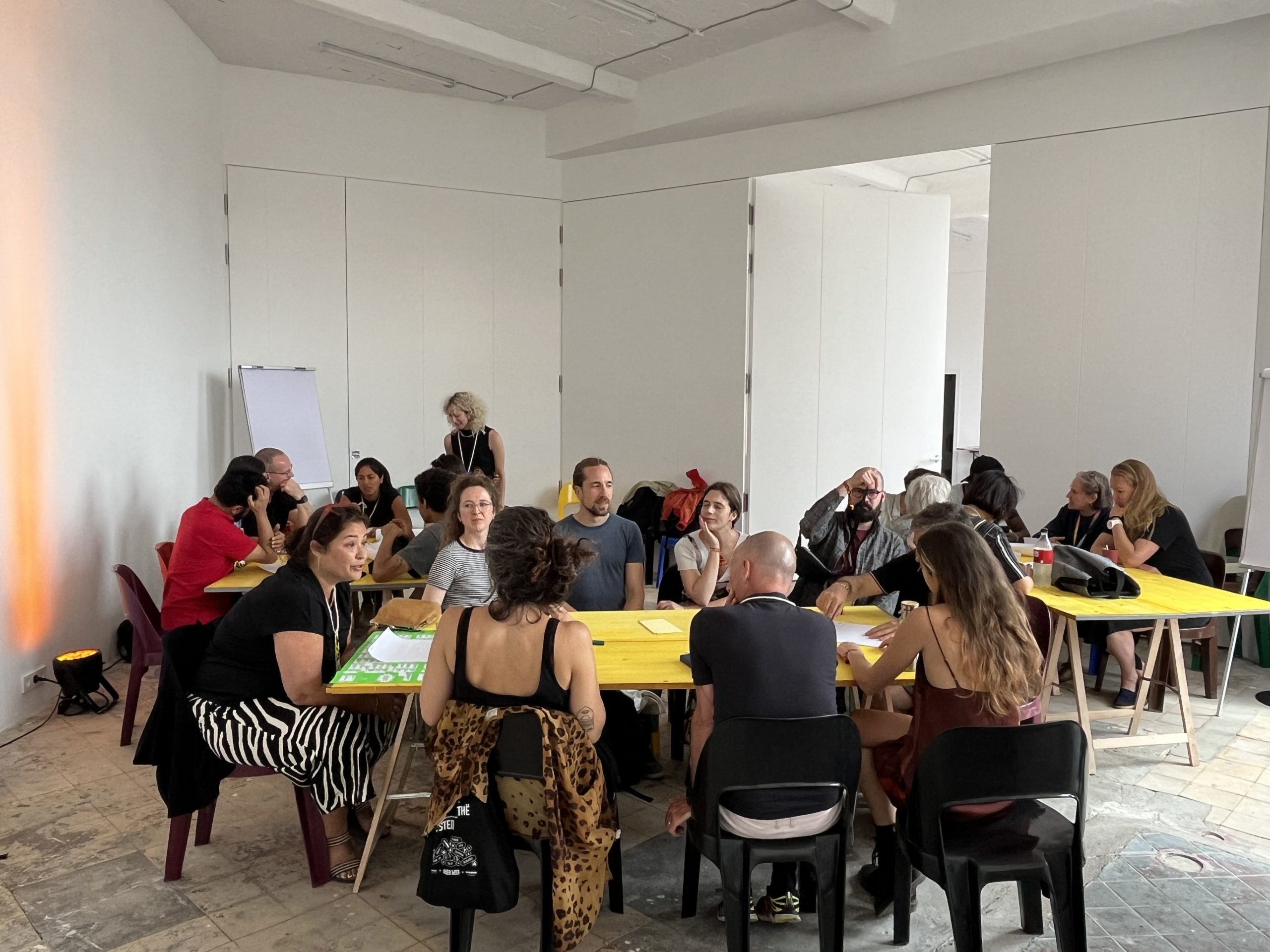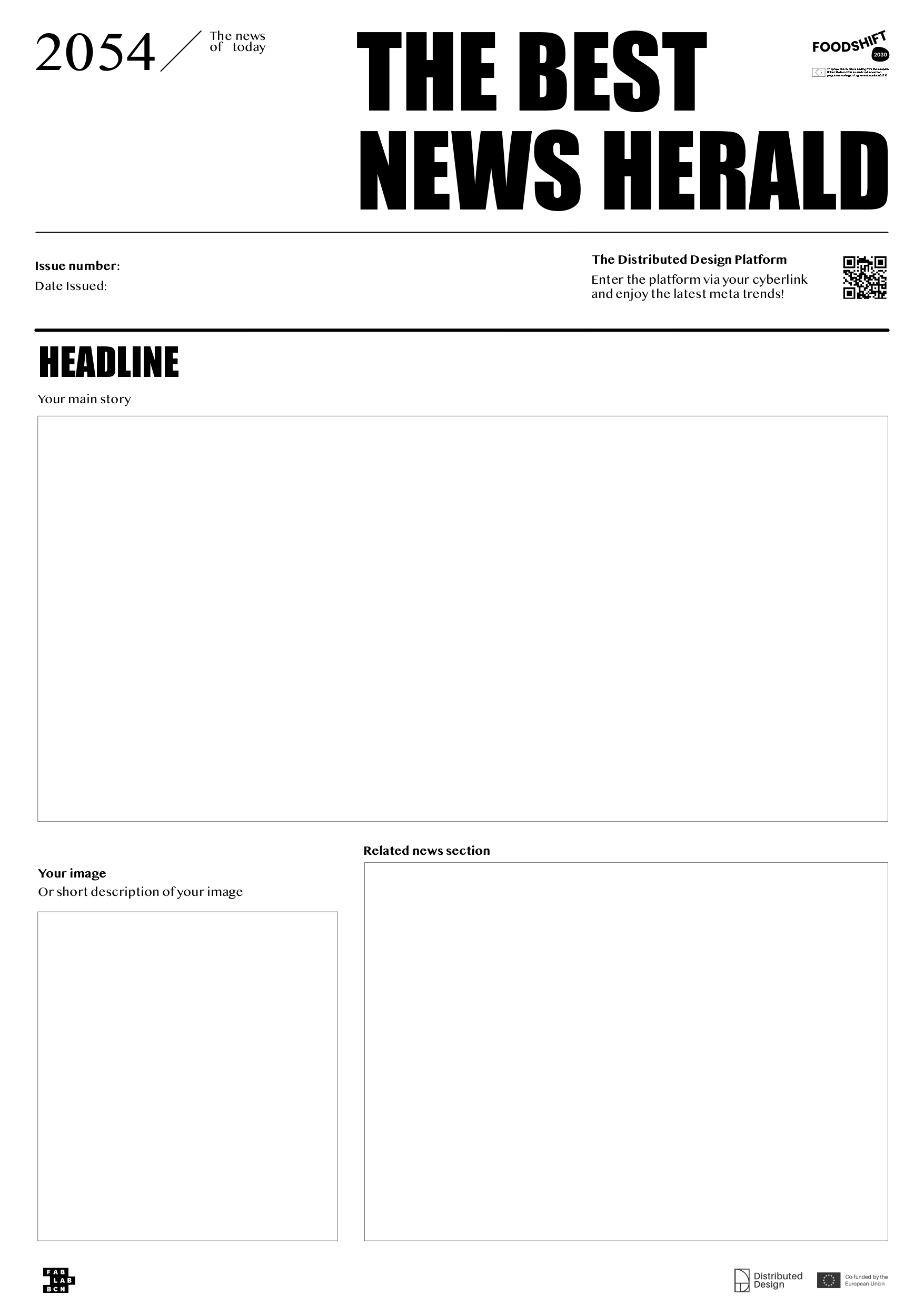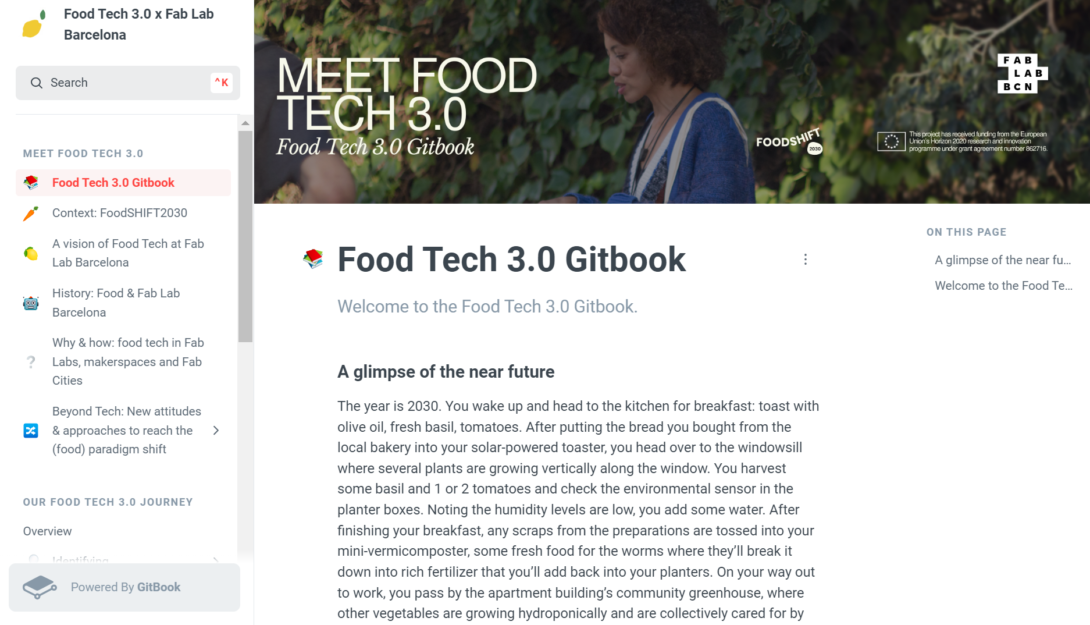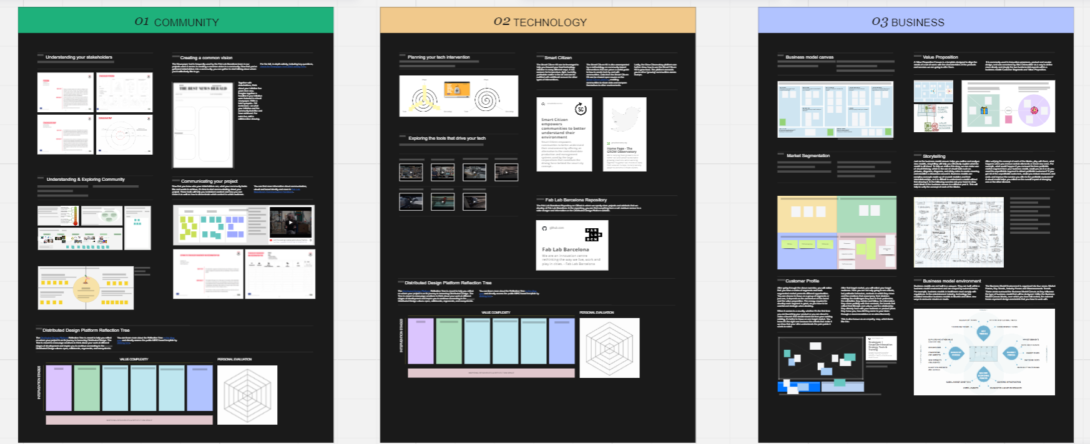At the recent re:publica Festival in Berlin, the Distributed Design Platform hosted a future(s) visioning workshop using a tool utilised by Food Tech 3.0 that encourages practicing Distributed Design in the context of food technology. Food is one of the growing areas of the Distributed Design Platform, and the workshop was an effort to not only support our community working in food, but to encourage our wider community to imagine what a future might look like in which Fab Labs and makerspaces support a transition to a more social, distributed, and regenerative food system.

A Future Newspaper Visioning Tool
21 participants from around the globe– including Nairobi, Kenya; Bogota, Colombia; and Amsterdam, the Netherlands– met the Food Tech 3.0 GitBook and used its Future Newspaper tool. The Future Newspaper is a popular visioning tool in which participants imagine a headline and story about their organisation or situation in the future. The workshop was attended by citizens who want to reclaim our food system, food innovators who are designing ways to do it, and makerspace, Fab Lab and Fab City participants that design spaces to recuperate the food system.
The Future Newspaper tool prompted participants to reflect and imagine a range of desirable futures that they would like to see in their community or environment, in this case in the year 2054 on the future of food and the integration of Fab Labs and makerspaces in that future(s). This process of creative reflection can help to generate new ideas and insights that may not have been considered before. After the workshop, we encouraged participants to work backwards from those visions to identify the necessary conditions, resources, stakeholders, and events that could help bring about those outcomes. These serve as discussion points that the community can deliberate and vote on to establish actions and interventions.
The participants were divided into three groups and each group came up with very different visions of the future, though all of them were based on relocalizing the food system to communities. The first group envisioned Fab Labs and makerspaces supporting the transition to mycelium-based cities, starting in Bogota, Columbia. Meanwhile, another group envisioned the impact of the end to global food exports, highlighting the retirement of the last food barge. The last group envisioned the reclamation of the food system through the multiplication of urban community gardens.

Distributed Design Platform meets Food Tech 3.0
Food Tech 3.0 is one of nine FoodSHIFT2030 Accelerator Labs (FALs), which are dedicated to identifying, maturing, combining, upscaling, and multiplying existing food system innovations in nine European cities. In the case of Barcelona, the Food Tech 3.0 FAL at Fab Lab Barcelona has the mission to: support and pilot open source food technology, and affiliated processes, that can facilitate the management, monitoring, socialization, and efficiency of food production, distribution, elaboration, consumption, and recycling in cities. Food Tech 3.0 is part of the Horizon 2020 European Union project, FoodSHIFT2030. The goal of FoodSHIFT2030 is to support a transition to a food system that is low-carbon, plant-based and circular by mobilising food citizenship across 9 city-regions and 27 subsequent enabler regions.
Over the course of the Food Tech 3.0 pilot’s lifetime, the Food Tech 3.0 GitBook (an living and open e-book) was developed to capture learnings about food technology and serve as a resource for food tech makers, communities, Fab Cities, Fab Labs & makerspaces, and policymakers.
While the Food Tech 3.0 GitBook was developed in the context of FoodSHIFT2030, it is a tool for carrying out Distributed Design, specifically in the context of food technology. For example, the GitBook discusses how Fab Labs, makerspaces, and Fab Cities can support a food system transition. However, many of the learnings and exercises can be applied to other disciplines: there are tools for innovators in the areas of community, technology, and business, all centered around creating community-based and collaborative initiatives as well as interviews with experts on paradigm shifts and community and sharing-based initiatives. These resources can inspire our community of Creative Talents and help you take action towards creating more open, collaborative, regenerative, and ecosystemic initiatives.
Lastly, both the GitBook and the Food Tech 3.0 FAL share the values of the Distributed Design Platform. The FAL’s values are open, community-based and driven, holistically regenerative, equitable, and ecosystemic. Meanwhile, the GitBook is an open resource that promotes collaboration between communities, food technology actors and those who wish to engage with food technology. It also encourages a vision of food technology that is socially, environmentally, and economically regenerative. Lastly, it encourages different parts of the food ecosystem to work together in order to create truly community-centered food technology as well as food citizenship. Furthermore, the GitBook encourages the principles of Distributed Design, encouraging food technology artefacts and knowledge to be adapted to new local contexts.
Call to Action
Are you curious about applying the Food Tech 3.0 GitBook to your own work? Do you want to practice the visioning exercise with your team or Lab? We recommend that you check out the full GitBook here! The link to the Future Newspaper tool can be found in the Food Tech 3.0 GitBook section on “A Collective Vision” here.
Then, you can share your reflections, visions, and more in Distributed Design Platform’s #food Discord channel. Hope to read you there!

